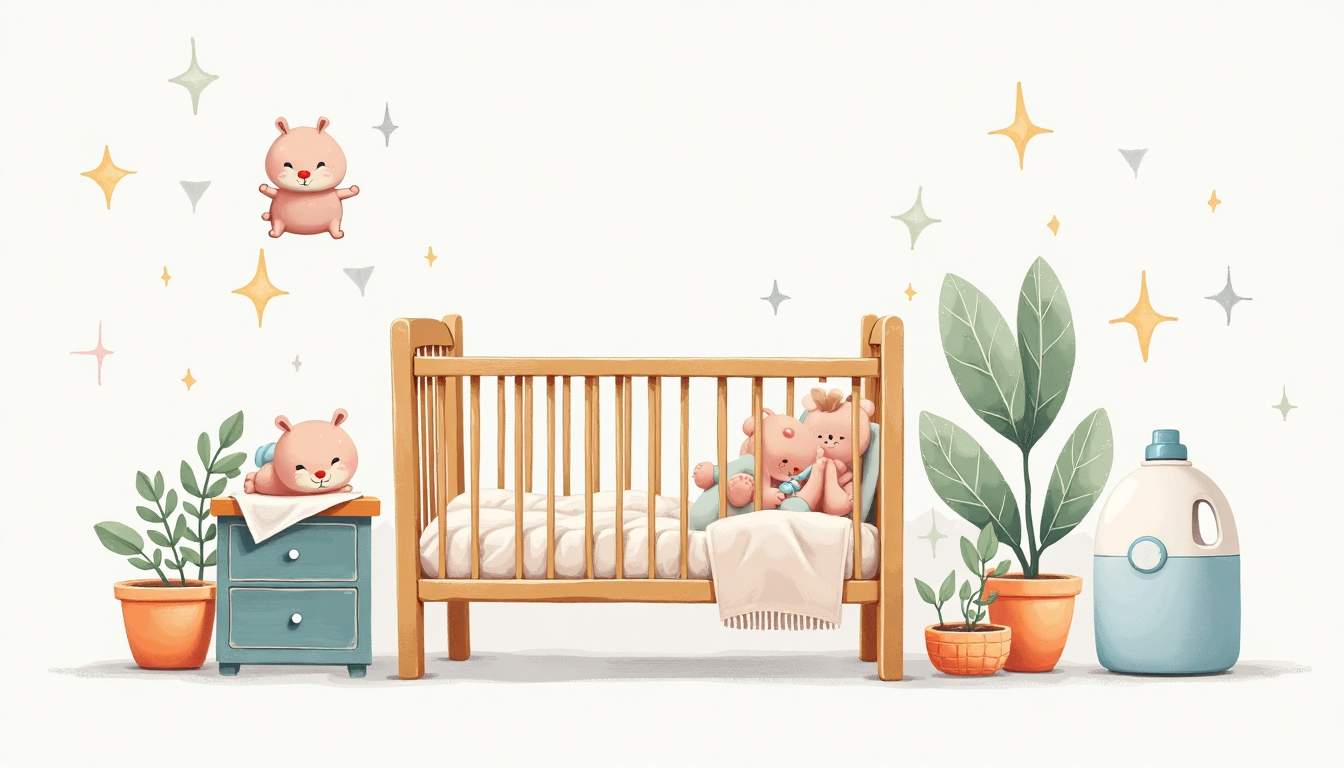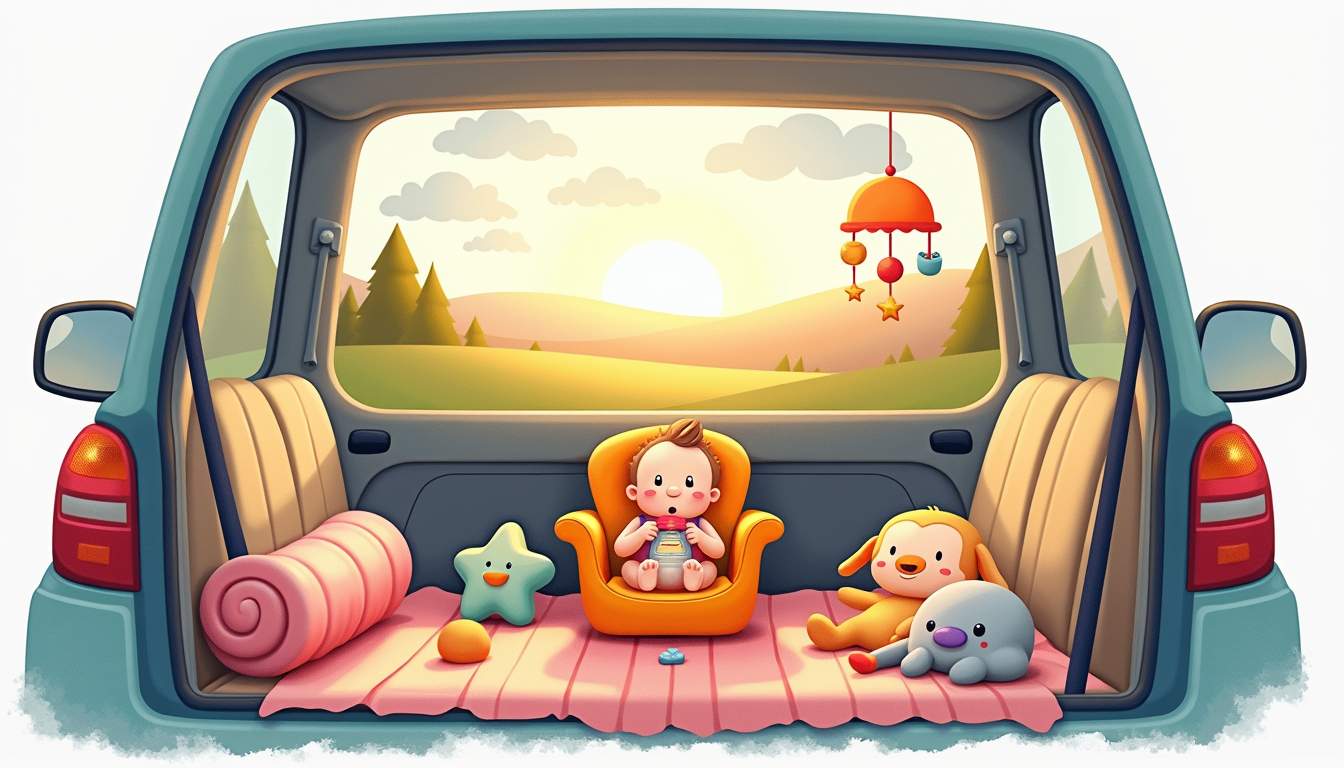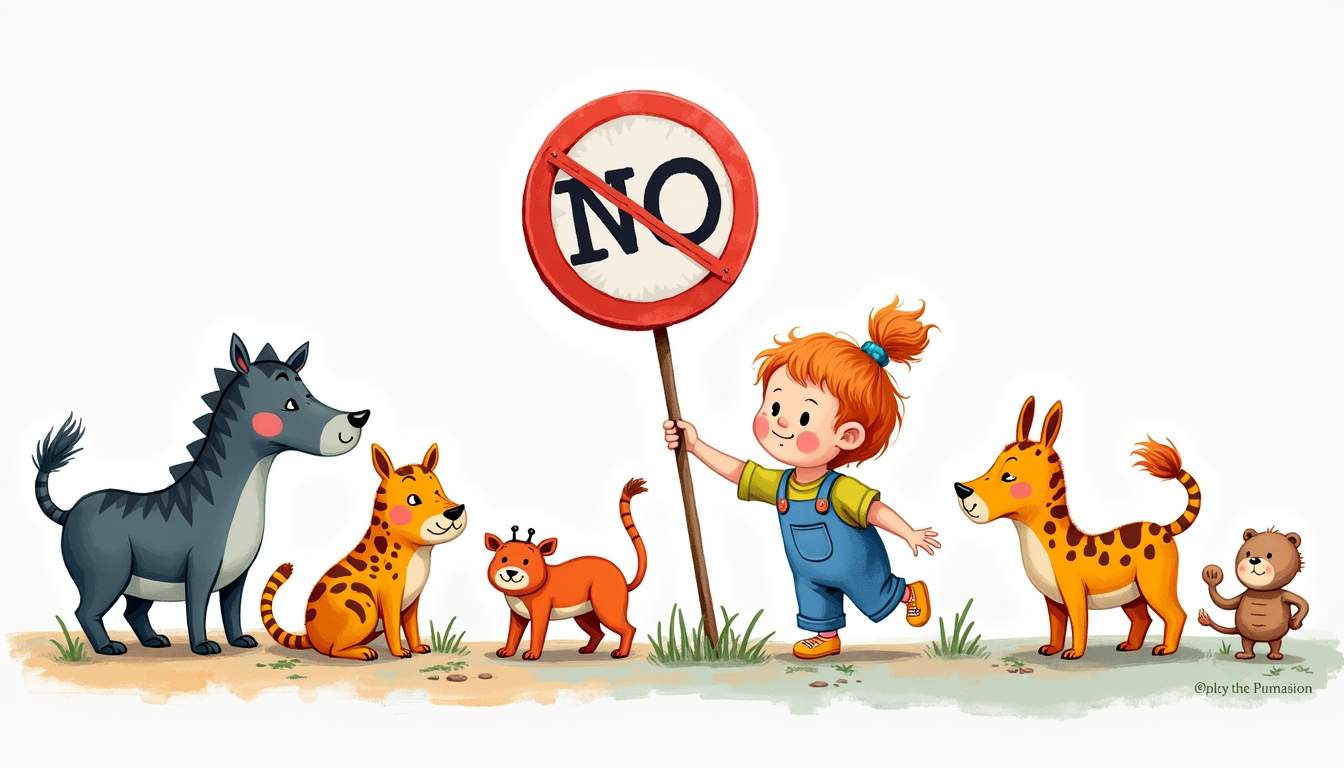As a new parent, one of the most pressing concerns is keeping your baby safe and healthy. Babies have developing immune systems, making them more susceptible to infections and illnesses. Therefore, understanding how to protect your little one from germs is crucial. This article offers essential tips and strategies to help you create a safe environment for your baby.
Understanding Germs and Their Impact
Germs are everywhere, and while many are harmless, some can cause serious health issues, especially for infants. Understanding the types of germs and how they spread can empower parents to take proactive measures. This knowledge is crucial, as infants have developing immune systems that may not yet be equipped to handle certain pathogens. By being informed, parents can create a safer environment for their little ones, reducing the risk of illness and promoting overall health.
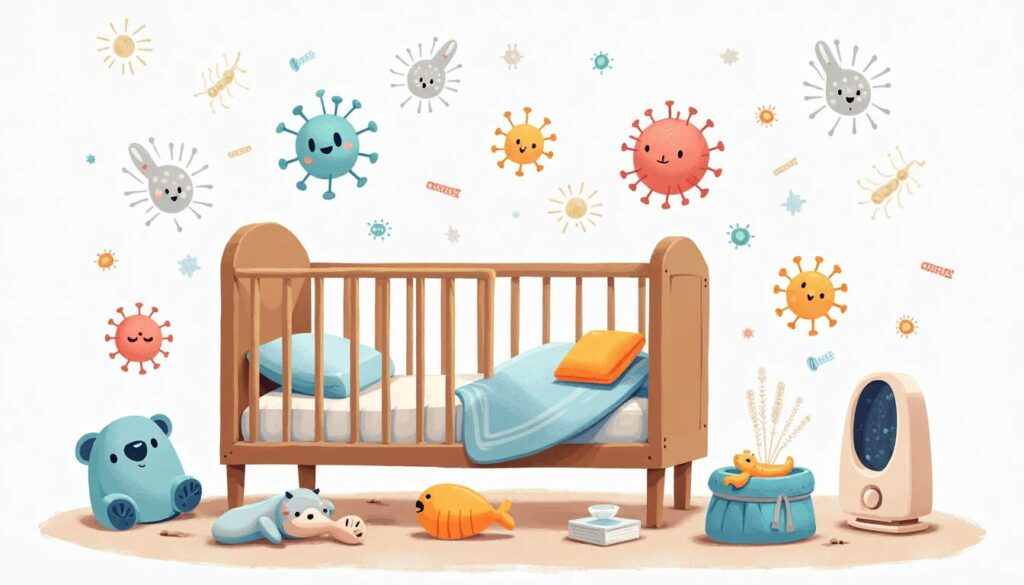
Types of Germs
Germs can be categorized into several types: bacteria, viruses, fungi, and parasites. Each type behaves differently and can cause various illnesses. For instance, viruses like the flu can be particularly dangerous for babies, while certain bacteria can lead to infections. Additionally, some bacteria are beneficial, such as those found in the gut that aid in digestion. Understanding the distinction between harmful and helpful germs can help demystify the role of these microorganisms in our lives. Parents should also be aware that certain fungi, like those causing yeast infections, can affect infants, particularly in warm, moist areas of the body.
How Germs Spread
Germs can spread through direct contact, airborne transmission, or contaminated surfaces. Babies often put their hands in their mouths and touch their faces, making them vulnerable to germs. Understanding these transmission methods can help parents implement effective prevention strategies. For example, frequent handwashing with soap and water is one of the simplest yet most effective ways to reduce the spread of germs. Additionally, keeping commonly used items, such as toys and pacifiers, clean and sanitized can further minimize exposure. Parents should also consider the importance of limiting contact with sick individuals and ensuring that their own vaccinations are up to date, as this can help protect their infants from potentially harmful infections.
Creating a Clean Environment
Maintaining a clean home is one of the most effective ways to protect your baby from germs. Here are some practical steps to ensure your living space is as germ-free as possible.
Regular Cleaning and Disinfection
Regularly cleaning and disinfecting surfaces that your baby frequently touches is vital. This includes countertops, toys, and high chairs. Use baby-safe cleaning products to ensure no harmful chemicals are left behind.
In addition to surfaces, consider washing your baby’s clothes, blankets, and bedding regularly. Germs can linger in fabrics, so frequent laundering helps reduce the risk of exposure. It’s also a good idea to designate a specific laundry basket for your baby’s items to prevent cross-contamination with other household laundry. Using hot water and a gentle, hypoallergenic detergent can further ensure that any lingering bacteria are eliminated without irritating your baby’s sensitive skin.
Air Quality Matters
Good air quality is essential for a healthy environment. Consider using an air purifier to filter out allergens and germs. Additionally, ensure that your home is well-ventilated to reduce the concentration of airborne germs. Opening windows when weather permits allows fresh air to circulate, diluting indoor pollutants and providing a natural way to refresh the air in your home.
Furthermore, incorporating houseplants can also contribute positively to air quality. Certain plants, such as spider plants and peace lilies, are known for their air-purifying properties. They can help absorb toxins and release oxygen, creating a more breathable environment for your baby. Just be sure to research which plants are safe for children, as some can be toxic if ingested. Maintaining a balance of clean air and safe greenery can enhance your home’s atmosphere, promoting overall well-being for your little one.
Personal Hygiene Practices
Practicing good personal hygiene is crucial for anyone who interacts with your baby. This includes family members, caregivers, and visitors. Establishing a routine that emphasizes cleanliness not only protects your baby from illness but also promotes a healthy environment for their growth and development. Teaching these practices early on can instill lifelong habits that benefit everyone in the household.
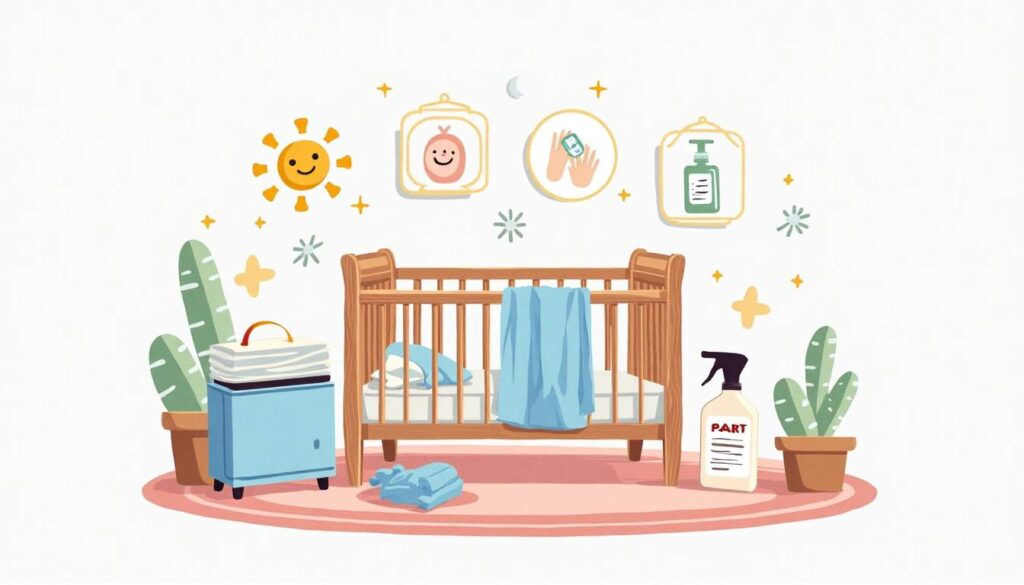
Handwashing Protocols
Handwashing is one of the simplest yet most effective ways to prevent the spread of germs. Ensure that everyone washes their hands thoroughly with soap and water before handling your baby, especially after using the bathroom or coming home from public places. It’s recommended to wash hands for at least 20 seconds, singing a song or counting can help make this fun and engaging for older siblings who might want to participate in the process.
For on-the-go situations, hand sanitizer can be a helpful alternative. However, it’s important to use products that are safe for babies and to apply them to your hands first before touching your child. Look for hand sanitizers that contain at least 60% alcohol and are free from harmful chemicals. Additionally, consider carrying sanitizing wipes for surfaces that your baby may come into contact with, such as shopping carts or public changing tables, to further reduce the risk of germ transmission.
Limit Exposure to Sick Individuals
While it may be difficult, limiting your baby’s exposure to sick individuals is essential. If someone in the household is unwell, take precautions such as keeping them away from the baby and encouraging them to wear a mask if they need to be in close proximity. It’s also beneficial to have a designated area in your home where the sick individual can rest and recover, minimizing the risk of spreading illness to the rest of the family.
Furthermore, consider implementing a visitor policy during flu season or other times of increased illness in your community. This might mean postponing visits from friends and family who are feeling under the weather or asking them to wait until they are fully recovered before meeting your baby. Clear communication about your hygiene practices and policies can help ensure that everyone understands the importance of keeping your little one safe and healthy.
Vaccination and Healthcare
Vaccinations play a critical role in protecting your baby from serious illnesses. Staying on top of your baby’s vaccination schedule is one of the best defenses against many infectious diseases.
Importance of Vaccinations
Vaccines help build your baby’s immunity against various diseases, including measles, whooping cough, and influenza. Consult with your pediatrician to ensure your baby receives all recommended vaccinations on time.
Regular Check-ups
Regular pediatric check-ups are essential for monitoring your baby’s health and development. During these visits, healthcare providers can offer guidance on hygiene practices, nutrition, and any concerns you may have about germs and infections.
Safe Social Interactions
As your baby grows, social interactions become increasingly important. However, these interactions can also expose your little one to germs. Here are some strategies to navigate social situations safely.
Playdates and Group Activities
While playdates are beneficial for your baby’s social development, it’s important to ensure that other children are healthy before allowing them to interact with your baby. Encourage parents to keep their children at home if they show any signs of illness.
Additionally, consider organizing playdates in outdoor settings where there is better ventilation and less risk of germ transmission.
Public Spaces and Outings
When taking your baby out in public, such as to parks or shopping centers, be mindful of the surfaces they may come into contact with. Use a stroller or carrier that can be easily cleaned, and avoid letting your baby touch public surfaces.
Feeding and Nutrition
Nutrition plays a vital role in supporting your baby’s immune system. A well-balanced diet can help strengthen their defenses against germs.
Breastfeeding Benefits
Breastfeeding offers numerous health benefits for infants, including antibodies that help protect against infections. If possible, breastfeeding should be encouraged for at least the first six months of life.
Introducing Solid Foods Safely
When introducing solid foods, ensure that they are prepared and stored safely to minimize the risk of foodborne illnesses. Wash fruits and vegetables thoroughly, and avoid processed foods that may contain harmful additives.
Traveling with Your Baby
Traveling can expose your baby to new environments and germs. However, with careful planning, you can minimize risks while still enjoying your adventures.
Preparing for Travel
Before traveling, ensure that you have all necessary supplies, including hand sanitizers, disinfectant wipes, and a first-aid kit. Research your destination to understand any health risks and vaccination requirements.
Staying Healthy on the Go
During travel, maintain good hygiene practices. Encourage everyone in your party to wash their hands frequently and avoid touching their faces. When using public transportation, consider using a baby carrier instead of a stroller, as it can be easier to manage in crowded spaces.
Recognizing Signs of Illness
Despite all precautions, it’s still possible for your baby to get sick. Being able to recognize the signs of illness early can lead to prompt treatment and a quicker recovery.
Common Symptoms to Watch For
Fever, coughing, runny nose, and unusual fussiness can all be signs that your baby is unwell. Pay attention to changes in their eating and sleeping patterns as well, as these can indicate discomfort or illness.
When to Seek Medical Attention
If your baby exhibits severe symptoms such as difficulty breathing, persistent vomiting, or a high fever, it’s important to seek medical attention immediately. Trust your instincts as a parent; if something feels off, don’t hesitate to contact your healthcare provider.
Final Thoughts
Protecting your baby from germs is a continuous journey that requires vigilance and proactive measures. By implementing these tips, parents can create a safer environment for their little ones, allowing them to thrive and grow healthy.
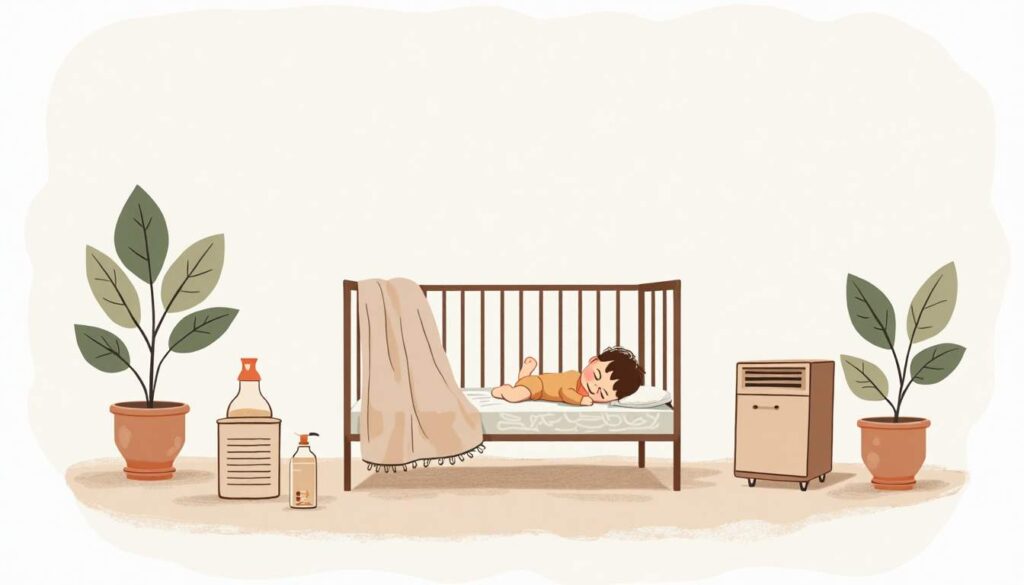
Remember, while it’s impossible to eliminate all germs, a balanced approach that includes good hygiene, proper nutrition, and regular healthcare can significantly reduce the risk of illness. Enjoy this precious time with your baby, knowing that you are doing your best to keep them safe.



